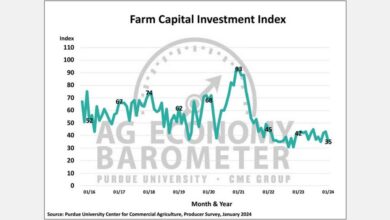What Is an Exchange-Traded Commodity (ETC)?

What Is an Exchange-Traded Commodity (ETC)?
An exchange-traded commodity (ETC) is a security that gives investors who do not have direct access to spot or derivatives commodities markets the opportunity to invest in metals, energy, livestock, and other commodities. An ETC can track an individual or a basket of commodities and provide an alternative to trading in the futures market.
Key Takeaways
- Exchange-traded commodities (ETCs) allow investors access to livestock, metals, and energy markets.
- An ETC can invest in either one commodity or in a commodity basket.
- ETCs are debt instruments, and the commodities tracked by the ETC serve as collateral for the note.
- The price of an ETC rises and falls along with its underlying commodities.
Investing in Exchange-Traded Commodities (ETCs)
ETCs help investors enter the market for livestock, precious or industrial metals, natural gas, and other commodities, often difficult for individual investors to access. A commodity basket ETC tracks multiple metals or a group of agricultural commodities, such as wheat, soybeans, and corn.
The performance of an ETC might be based on the spot commodity price, which is the price for immediate delivery, or on the futures price, a derivative contract for delivery at a future date. ETCs attempt to track the daily performance of the underlying commodity.
ETCs charge a management fee or expense ratio that compensates the company for running the ETC. Every ETC has a net asset value (NAV), considered the fair value of each share based on the value of the holdings underlying the ETC. Since shares of the ETC trade on an exchange, its value on the market might fluctuate above or below the NAV value.
Investors can buy single-commodity ETCs like gold or invest in index-tracking ETCs that include various commodities in a sector, such as energy.
Types of ETCs
ETCs allow investors to focus on a single commodity. ETC shares are listed and traded on exchanges, with prices fluctuating based on price changes of the ETC’s underlying commodities. ETCs are structured as notes, which are debt instruments underwritten by a bank for the issuer of the ETC, but which are backed by the commodities they track as collateral.
The ETC doesn’t buy or sell the commodity or futures contract directly. That note is collateralized by physical commodities, which are bought using the cash from inflows into the ETC. Inverse ETCs are more complex instruments that move up when a commodity moves down, or vice versa.
Leveraged ETCs, meanwhile, are structured in such a way that commodity movements are multiplied by a particular factor, such as two or three, resulting in two or three times the volatility of the underlying commodity. Using leverage increases the potential for gains, but also potential losses.
Where Is an Exchange-Traded Commodity (ETC) Traded?
ETC shares are listed and traded on exchanges, with prices fluctuating based on price changes of the ETC’s underlying commodities.
What Is the Difference Between an ETC and a Commodity ETF?
ETCs should not be confused with commodity ETFs, which invest directly in and hold physical commodities, such as agricultural goods, natural resources, and precious metals. The ETC doesn’t buy or sell the commodity or futures contract directly. That note is collateralized by physical commodities, which are bought using the cash from inflows into the ETC.
How Do ETCs Compare to Exchange-Traded Notes (ETN)?
Using assets as collateral reduces the risk if the underwriter of the note defaults. This is similar to an exchange-traded note (ETN), except that the ETC is collateralized by holdings in the physical commodity, whereas an ETN is not.
The Bottom Line
Exchange-traded commodities (ETCs) allow investor to access the commodity market through one commodity or a basket of commodities that usually follow an index. ETCs are debt instruments, and the commodities act as collateral for the note. An ETC’s price depends on the price of the underlying commodities.





